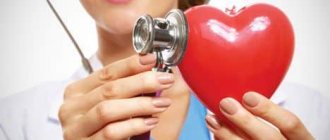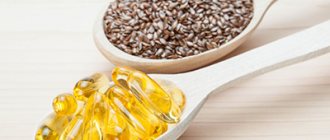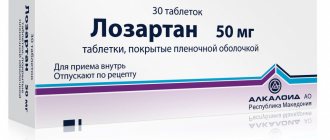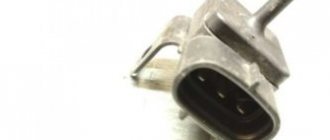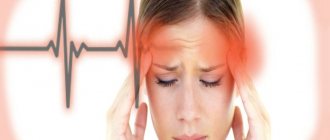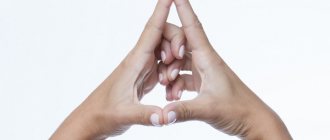Blood pressure consists of systolic and diastolic, or, as people call it, upper and lower. Diastolic, or lower, is also called cardiac. It is formed at the moment of complete relaxation of the heart muscle. Ideally, it should be 70 mmHg. If this value exceeds 80 mm, then high cardiac pressure occurs. If it increases from excitement or during physical work, then there is no reason to worry: this is a normal phenomenon. We can talk about pathology if there is a persistent increase in lower pressure.
Treatment methods
Detection of values of 130/90 becomes an indication for balancing the physical and emotional state.
A further increase in indicators (150/95) indicates the need to immediately seek medical help.
Drug therapy
Based on the patient’s condition, a course of treatment is prescribed, including:
- diuretics that help remove excess fluid from the body;
- medications that normalize heart rate;
- sedatives.
In order to eliminate pain in the heart area, preference is given to Corvalol, Validol and Corvalment.
A condition accompanied by a persistent increase in indicators requires the use of the following medications:
- Diuretics - Veroshpiron, Triamterene, Chlorthalidone;
- ACE enzyme inhibitors (these are Quinapril, Captopril, Lizoril);
- Calcium antagonists - Nifedipine, Verapamil, Cardil;
- Beta-blockers such as Atenolol, Betaxolol, Talinolol;
- Angiotensin II receptor blockers (these are Irbesartan, Telmisartan, Valsartan).
The therapeutic course begins with the use of one of the drugs from the listed groups. The minimum dosage is initially prescribed. It is gradually increased.
If necessary, the doctor may recommend the simultaneous use of 2-3 types of drugs from different drug groups.
Depending on the patient’s condition, medications are used to help quickly reduce blood pressure. They have a short-term effect, this is first aid . If your blood pressure rises frequently, your doctor will prescribe long-acting medications, which are recommended to be taken continuously.
High heart pressure is a pathology that requires taking not only pills that improve the condition of the heart and blood vessels. An integrated approach to treatment involves the use of sedative drops. Pharmaceutical products such as tincture of valerian and motherwort have proven themselves well.
- Heart high blood pressure tablets
You can reduce blood pressure that has increased due to stress by drinking a few drops of Valocordin with water.
What to do if a pregnant woman’s blood pressure rises? At home, you can lower it with Methyldop. However, it is not recommended to use this method often. It is necessary to seek advice from a specialist.
This advice should be remembered by anyone who develops dangerous symptoms characteristic of hypertension. Taking any medications without a doctor's prescription is life-threatening.
The medications given in the article are described for informational purposes only. Only a doctor can choose the required dose and duration of therapy.
Other methods
As a supplement to the therapeutic course, you can use traditional medicine recipes. They use centuries-old proven medicinal herbs that, together with medications, can reduce high blood pressure and maintain it normal.
For this purpose, infusions and decoctions are prepared from chamomile, peppermint, yarrow, motherwort, and hawthorn flowers.
Infusions and decoctions, as well as medications, should be used strictly as prescribed by a specialist.
Effective means
It is possible to alleviate the condition of high blood pressure with the help of apple cider vinegar. To do this, cotton pads are moistened in a vinegar solution and applied to the temples.
- Causes and symptoms of low heart pressure, what to drink to increase it
You can put mustard plasters on the back of your head.
These methods are good for obtaining a temporary effect, but they cannot replace therapy, which focuses not only on relieving symptoms, but also, most importantly, eliminating the root cause of the pathology.
Why is high heart pressure dangerous?
If a person constantly suffers from high blood pressure, he should know what and how to reduce heart pressure, because this condition is not safe. Increased blood pressure negatively affects the functioning of the body.
Doctors note the negative impact of this condition on the heart muscle. With increased pressure, serious changes occur in it. More often, pathology manifests itself in the area of the left ventricular myocardium (this area of the heart increases in size). In this case, the organ receives insufficient blood, which is dangerous for the development of ischemia.
Due to increased blood pressure, atherosclerosis develops. With this pathology, the walls of large vessels (arteries, veins) and small capillaries are affected. With this disease, doctors often diagnose kidney damage (nephropathy, renal failure).
High blood pressure also affects the brain. Hypertension can act as a provocateur of stroke and ischemia.
Hypertension also negatively affects the organs of vision (eyes). With high blood pressure, blood vessels thicken. This pathology is accompanied by hemorrhages inside the retina, which threatens blindness.
Important: Increased blood pressure in the early stages of pregnancy is considered dangerous. Severe vasoconstriction causes insufficient supply of oxygen and nutrients to the child. The physiological growth of the fetus may slow down. A strong increase in blood pressure can provoke spontaneous miscarriage.
Causes
Elevated heart pressure is most often a concern for various diseases:
- Heart diseases. Common causes of high lower pressure are cardiovascular pathologies. It increases with deterioration of the contractile function of the left ventricle. This happens with myocardial infarction, myocarditis, myocardiosclerosis. If the return of venous blood to the heart is impaired, as a rule, only diastolic pressure increases, while systolic pressure remains normal.
- Diseases of other organs. The reasons for increased blood pressure are some kidney pathologies, thyroid disorders, obesity, spinal diseases, and hormonal imbalances.
How to reduce lower blood pressure
The natural desire of a healthy person is to bring the body’s indicators back to normal. Before taking pills for blood pressure, you need to remember how to reduce it using traditional medicine at home. The use of chemistry gives a guaranteed effect, but has many side effects on the body. You can reduce your lower pressure by adhering to the following list of rules:
- the diet should contain fresh vegetables and fruits plus some fermented milk products;
- Eliminate sugar (can be replaced with honey);
- drink decoctions of medicinal herbs, diuretics or lowering blood pressure;
- drink beet juice to strengthen the walls of blood vessels - 1 tablespoon half an hour before meals;
- reduce the load on the kidneys.
How to lower lower blood pressure without lowering upper blood pressure
Sometimes you need to lower the DD without lowering the top one. Even in this case, you can reduce its level at home. This method is recommended by almost all experts. You need to lie on your stomach and place an ice bag or some frozen product on your neck. Stay in this position for about half an hour. Afterwards, massage the cooled area using cream or aromatic oils. In 90% of cases, increased DD decreases without the upper one.
- Causes of increased heart pressure, methods of treatment and first aid for yourself
How to lower heart pressure
There are a huge number of medications that help lower heart pressure, and almost all of them are available without a prescription. It is important to remember that their uncontrolled use can lower blood pressure before hospitalization and long-term treatment. If you have high blood pressure, you must strictly follow the doctor's prescription and take only those medications that have been prescribed. Even analogs or generics can have different effects on the same patient, so you need to know what to take specifically for you.
Pills
List of the most common modern tablets for high DD:
- Verapamil;
- Atenolol;
- Ramipril;
- Enalapril;
- Veroshpiron (fast-acting sublingual tablets for high blood pressure);
- Indap;
- Hypothiazide;
- Triampur.
Heart medications
Drug therapy makes sense if the persistently elevated DD is more than 90 mmHg. Art. To relieve high blood pressure, a complex of drugs is used. Their extended combination is selected exclusively for a specific patient. With the same degree of hypertension, its causes can be very different, and this implies how to use medications for a particular patient.
List of cardiac drugs:
- thiazides – Hypothiazide, Hydrochlorothiazide, Cyclomethiazide;
- sulfonamides – Oxolodin, Indapamide, Oxodoline;
- beta blockers – selected completely individually;
- Carvedilol is one of the most effective non-selective adrenergic blockers as part of such drugs as Cardivil, Atram, Talliton, Cariol, Bagodilol, Vedicarol, Recardium.
What does a low diastolic reading mean?
After a series of studies, doctors found that the nature of the pathology in different people can differ significantly. There are three types of deviations that help to understand what problems are in the body's functioning. Types of arterial hypotension:
- Orthostatic. This type of pathology may mean that the human body cannot quickly and correctly regulate indicators. This disease is characterized by a sharp drop in blood pressure (blood pressure) downwards after a change in position. At the same time, the head may become dizzy, and in some cases the person loses consciousness. The main reasons: pregnancy, dehydration, use of certain groups of medications.
- Postprandial hypotension. The main symptoms are a sudden rush of blood to the lower extremities after eating. This type of malaise indicates disturbances in the functioning of the endocrine system, mental disorders (neurasthenia, neurosis, etc.), organic changes in the brain (Alzheimer’s disease may threaten).
- Vegetative-vascular. This diagnosis means that the cardiovascular system is developing or functioning incorrectly. Often diagnosed in teenagers.
Treatment of high heart pressure
It is worth remembering that the causes and treatment of high heart pressure are absolutely individual for each organism. Treatment should begin with a comprehensive diagnosis of the whole organism. First of all, contact a cardiologist and undergo the appropriate examinations and tests. You may need help from other specialists.
The main task in the treatment of hypertension is to identify the causes that provoke high blood pressure and eliminate or minimize them.
At the local level, the primary means of combating high blood pressure include taking medications that normalize blood pressure. Also, the primary task of a person suffering from hypertension is to establish a normal daily routine, proper rest, minimizing stress, walking in the fresh air, proper nutrition, giving up bad habits, and physical activity.
Symptoms of pathology
When diastolic readings increase, a person feels all the signs of hypertension, so it is difficult to independently diagnose the disease.
Signs of high heart rates:
- severe headache localized in the occipital and temporal parts;
- weakness, limbs become weak;
- dizziness, nausea;
- redness of the skin.
Elevated diastolic pressure is often referred to by doctors as the “silent killer.” What does it mean? Symptoms of the disease often do not cause concern for people; many attribute them simply to overwork and stress. But if the lower pressure readings often increase, the likelihood of a stroke or heart attack increases several times.

